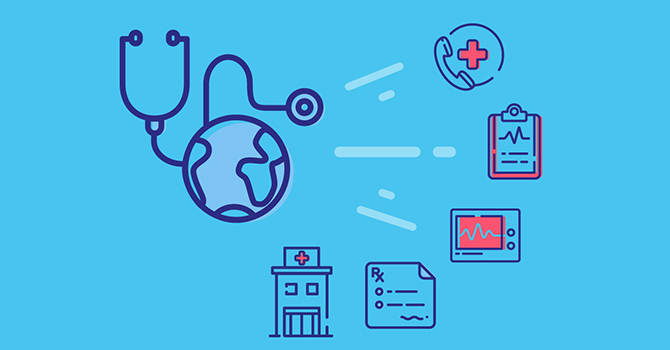Recognizing the Role of Healthcare RCM in Enhancing Financial Performance and Individual Satisfaction
Browsing the complexities of Healthcare Earnings Cycle Administration (RCM) is vital for achieving optimum economic efficiency while concurrently raising patient fulfillment. As we explore the transformative possibility of RCM, concerns concerning its calculated implementation and future advancements bid, promising understandings that could redefine sector standards and individual experiences alike.

Key Components of RCM
In the complex landscape of healthcare, Revenue Cycle Management (RCM) is pivotal in guaranteeing financial stability and operational efficiency. A comprehensive RCM system encompasses numerous essential parts, each playing an essential duty in the smooth administration of a doctor's financial processes. Client enrollment and qualification verification are fundamental steps, ensuring that precise individual info is captured and insurance coverage is confirmed prior to solutions are rendered. This decreases the risk of claim rejections and increases the reimbursement procedure.

Charge capture is an additional vital component, including the accurate recording of services given to clients. It makes certain that all billable services are represented, thereby making best use of income possibility. Concurrently, medical coding translates patient encounters into standard codes, which are crucial for payment and regulatory compliance.
Cases entry and management follow, including the prep work and entry of cases to payers. This process requires precise interest to information to decrease errors and prevent delays. Denial administration is a positive strategy to address and deal with refuted claims, protecting profits streams.
Finally, repayment uploading and person collections finish the cycle, ensuring payments are accurately tape-recorded and impressive equilibriums are pursued. With each other, these components form a robust framework that supports the functional and economic wellness of healthcare organizations.
Influence On Financial Efficiency
Effective Income Cycle Monitoring (RCM) considerably affects a healthcare company's economic efficiency by optimizing capital and decreasing revenue leak. RCM includes the extensive invoicing and collection processes that guarantee health care service providers efficiently manage their financial deals from person registration to last settlement. By enhancing these processes, organizations can reduce rejected cases, accelerate repayment cycles, and enhance general monetary health.
Economic efficiency is improved through thorough monitoring of billing treatments, which entails exact coding and timely submission of claims. This reduces the likelihood of case rejections and denials, which can dramatically impede earnings circulation if not addressed immediately. Moreover, incorporating advanced innovation remedies helps with real-time monitoring of claims and monetary metrics, providing health care managers with the devices required to make educated critical decisions.

Enhancing Individual Complete Satisfaction
While maximizing monetary efficiency is a crucial goal of Income Cycle Administration (RCM), it likewise plays a critical role in enhancing patient satisfaction. By reducing management worries, RCM permits health care suppliers to focus much more on patient treatment, which straight enhances client satisfaction.

RCM also enhances person contentment with efficient communication. By keeping a comprehensive data source of individual info, RCM helps with enhanced communication in between clients and healthcare service providers, ensuring patients really feel notified and valued. This transparency and accessibility cultivate a favorable client experience. Overall, reliable RCM application not just improves financial end results yet likewise substantially adds to a patient-centered healthcare environment.
Methods for Reliable RCM
Achieving efficient Earnings Cycle Management (RCM) needs medical care organizations to carry out a collection of strategic methods that make sure financial stability and operational performance. One critical technique is the fostering of technology-driven remedies, such as integrated software application systems that simplify payment processes, decrease errors, and boost data accuracy. These systems make it possible for real-time monitoring of financial metrics, permitting punctual recognition and rectification of ineffectiveness.
An additional strategy is the standardization of processes across the profits cycle. Healthcare RCM. This entails creating consistent policies for client registration, insurance policy verification, and claims processing. By guaranteeing that all personnel stick to these criteria, companies can minimize inconsistencies and accelerate repayment collections
Personnel training and advancement likewise play an essential function in efficient RCM. Well-trained workers can effectively navigate complex billing procedures and regulations, boosting and minimizing you could look here rejections capital. Regular updates on policy adjustments and ideal techniques assist preserve a experienced and experienced labor force.
Future Trends in RCM
As healthcare companies improve their Income Cycle Management (RCM) approaches with modern technology and standardized procedures, interest is now turning in the direction of the future patterns shaping this essential area. One substantial fad is the assimilation of expert system (AI) and maker knowing to automate intricate tasks, such as cases processing and predictive analytics. These modern technologies are expected to minimize mistakes, accelerate deal times, and give you can find out more data-driven insights for much better decision-making.
In addition, the shift towards value-based treatment proceeds to influence RCM methods - Healthcare RCM. Doctor are expected to significantly focus on client results and satisfaction, requiring RCM systems that can fit brand-new reimbursement models. This shift will need even more comprehensive data collection and analysis to efficiently report and gauge on performance metrics
Interoperability is one more emerging concern, as seamless data exchange between diverse systems ends up being essential. Enhanced interoperability will assist in even more accurate individual information sharing, minimizing management concerns and improving the individual experience.
Conclusion
Healthcare Profits Cycle Management (RCM) substantially affects both economic efficiency and individual satisfaction by enhancing payment processes, ensuring exact coding, and enabling prompt insurance claims entry. Effective RCM reduces profits leakage and accelerates capital, lowering case denials and accelerating repayments. This effectiveness promotes depend on and contentment amongst individuals. RCM systems likewise help with much better interaction and versatile payment options, creating a patient-centered experience. Future RCM fads will likely concentrate on more incorporating innovation to enhance these advantages.
Browsing the complexities of Medical care Income Cycle Management (RCM) is necessary for achieving ideal financial efficiency while all at once raising individual complete satisfaction. RCM incorporates the detailed payment and collection procedures that ensure healthcare companies efficiently handle their monetary purchases from patient registration to last settlement. By reducing management worries, RCM allows healthcare companies to concentrate extra on individual treatment, which directly boosts patient satisfaction.
By maintaining an extensive database of individual info, RCM facilitates improved interaction between people and medical care carriers, making certain patients really feel educated and valued.Healthcare Profits Cycle my website Administration (RCM) considerably influences both monetary efficiency and client satisfaction by enhancing payment procedures, guaranteeing precise coding, and allowing timely insurance claims entry.
Comments on “Why Healthcare RCM is Necessary for Financial Wellness in Medical Practices”